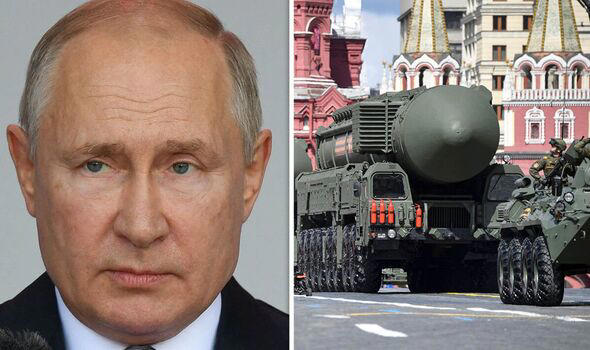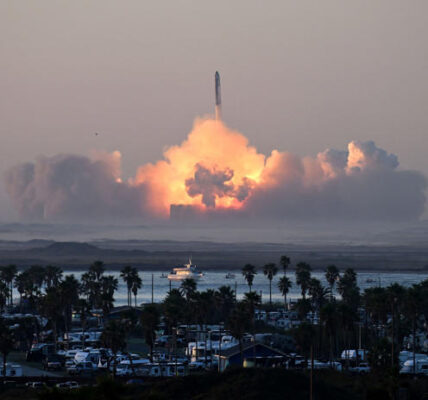Russia Nuclear Missile Test Threat intensifies as Deputy Foreign Minister Sergey Ryabkov warns of possible resumption of nuclear tests, raising concerns amid the ongoing war in Ukraine.

© © Pixabay
Russia Nuclear Missile Test Threat: A Growing Concern in Global Security
The Russia Nuclear Missile Test Threat has become a significant concern as tensions between Russia and the United States escalate. Sergey Ryabkov, Russia’s Deputy Foreign Minister, has openly warned that Russia may resume nuclear missile tests if the U.S. takes similar steps. This statement, delivered during a national television interview and reported by the Russian news agency TASS, has sent shockwaves through international relations. What makes this warning more alarming is that Washington has not indicated any intention of resuming nuclear tests, making Russia’s threat particularly provocative.
The Russia Nuclear Missile Test Threat underscores the fragility of the current global security environment, especially as the war in Ukraine continues with no end in sight. Ryabkov’s comments are part of a larger narrative where several high-ranking Russian officials have increased their nuclear rhetoric, possibly signaling Russia’s frustration with Western involvement in the conflict.
Russia’s Nuclear Doctrine and Its Conditions
According to Ryabkov, Russia’s nuclear doctrine allows for the resumption of nuclear missile tests. However, he clarified that such a step would only be taken if the U.S. decides to conduct nuclear tests first.
This aspect of the Russia Nuclear Missile Test Threat is crucial. It indicates that Russia’s approach to nuclear testing is reactive, not proactive, but the fact that this threat has been vocalized shows Russia’s willingness to use its nuclear arsenal as a bargaining chip. Both Russia and the U.S. have refrained from conducting nuclear tests since the early 1990s, with the U.S. halting such activities in 1992. The two countries signed the Comprehensive Nuclear-Test-Ban Treaty (CTBT) in 1996, but neither has ratified the agreement, leaving room for potential escalation.
The Comprehensive Nuclear-Test-Ban Treaty (CTBT): A Background
To fully understand the Russia Nuclear Missile Test Threat, it’s important to look at the history behind nuclear test bans. The CTBT is a multilateral treaty that aims to prohibit all nuclear explosions, both for civilian and military purposes. Although it was signed by major powers, including the U.S. and Russia, it has not been fully enforced because several key nations, including the U.S., China, India, and Pakistan, have not ratified it.
This loophole has created an environment where countries can still legally resume testing if they choose to withdraw from the treaty, a scenario that the Russia Nuclear Missile Test Threat brings closer to reality. Ryabkov’s statement could be seen as an indirect challenge to the U.S. to either recommit to the treaty or face the possibility of Russia returning to the era of nuclear tests.
Impact of the War in Ukraine on Nuclear Tensions
The war in Ukraine, which has dragged on for over two years, has been a driving force behind the Russia Nuclear Missile Test Threat. The conflict has caused significant losses on both sides, with tens of thousands of soldiers dead or wounded, and has drawn the U.S. and its Western allies deeper into the fray by providing military and economic support to Ukraine.
For Russia, the continued Western support for Ukraine is seen as a provocation. This is evident from the increasing nuclear rhetoric coming from Russian officials, with the Russia Nuclear Missile Test Threat being the latest example. Ryabkov’s warning aligns with other statements from Russian leaders, who have hinted at the use of nuclear weapons if Russia’s interests are threatened.
In addition to the Russia Nuclear Missile Test Threat, Russia has taken other provocative steps, such as moving some of its nuclear warheads into Belarus. This move has further alarmed neighboring countries and NATO members, as it brings nuclear weapons closer to the borders of Western Europe. The deployment of nuclear warheads in Belarus is part of Russia’s broader strategy to showcase its military might and to signal that it is prepared to take drastic measures if necessary.
The U.S. Response and Global Repercussions
So far, the U.S. has not officially responded to the Russia Nuclear Missile Test Threat. The Biden administration has been cautious in handling Russia’s nuclear rhetoric, aiming to avoid escalating the situation. Washington has reiterated its commitment to avoiding a direct military conflict with Russia, though it continues to support Ukraine in its fight against Russian aggression.
However, the Russia Nuclear Missile Test Threat raises concerns about the future of nuclear arms control. If Russia were to resume nuclear testing, it could set off a chain reaction, with other nuclear-armed countries potentially following suit. This could lead to a new nuclear arms race, undoing decades of progress in arms control.
Countries around the world are watching the Russia Nuclear Missile Test Threat closely. NATO has already increased its military presence in Eastern Europe in response to Russian actions, and there is a growing fear that any further escalation could lead to more direct confrontations between Russia and the West.
The Future of the Russia Nuclear Missile Test Threat
The Russia Nuclear Missile Test Threat is not just about the resumption of nuclear tests. It represents a broader strategy by Russia to use its nuclear capabilities as leverage in its geopolitical struggles. The war in Ukraine has already created significant instability in the region, and the threat of nuclear escalation only adds another layer of complexity.
As the conflict drags on, the likelihood of the Russia Nuclear Missile Test Threat becoming a reality may increase, especially if Russia feels cornered by Western sanctions and military aid to Ukraine. For now, the international community can only hope that both Russia and the U.S. continue to refrain from nuclear testing and that diplomatic efforts can help de-escalate the situation.
Conclusion
The Russia Nuclear Missile Test Threat is a stark reminder of the dangers of nuclear escalation in a time of geopolitical tension. As Russia and the U.S. navigate their strained relationship, the threat of nuclear testing looms large. While Ryabkov’s comments suggest that Russia would only conduct tests if the U.S. does so first, the very fact that such a warning has been issued highlights the precarious state of global security. The world must remain vigilant and committed to arms control to prevent the reemergence of a nuclear arms race.
Related:
North Korea US Submarine Tensions: 5 Explosive Threats Escalating Quickly



